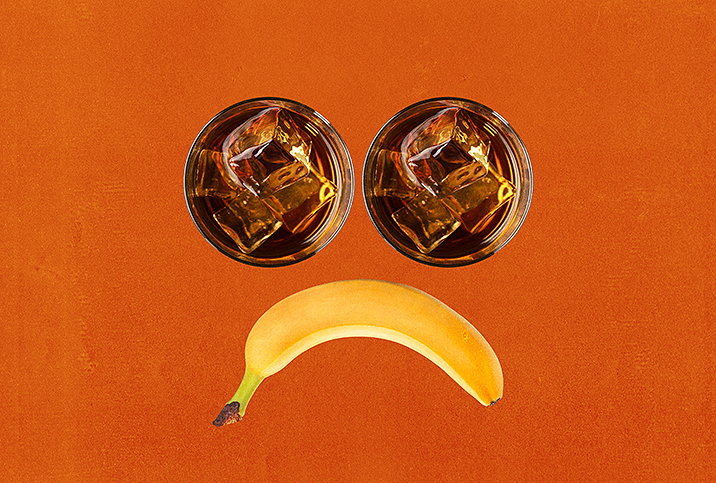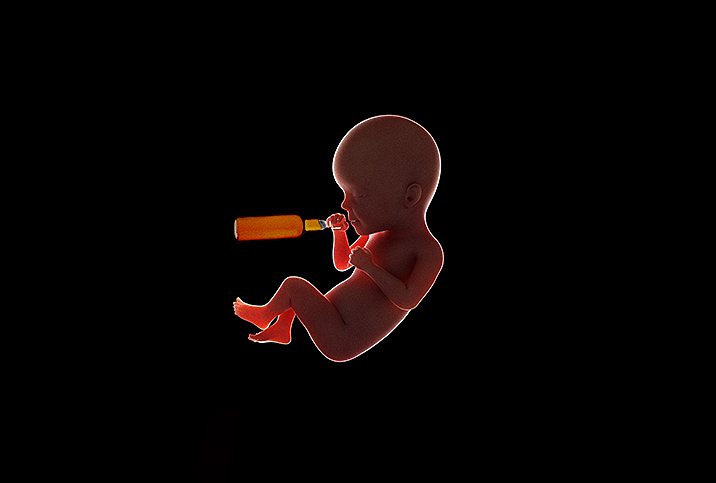Alcohol Consumption: The Good, the Bad and the Ugly

Alcohol has played a pivotal role in global societies for centuries—it seems that right after the wheel was invented, distilling alcohol was the next big discovery. But as much as it's been hailed as a universal panacea, the critics are lined up against it, pointing to damning research and even demanding limits to its availability.
Whatever your opinion, science is science. So let's hear what experts have to say about how alcohol affects the body.
Can drinking alcohol be good for you?
One reason to partake might be because there is research that suggests alcohol can help mitigate against diabetes.
"The main mechanism through which low to moderate alcohol consumption is believed to positively affect diabetes is by preventing the liver from creating new glucose through a process known as gluconeogenesis," said Odelia Lewis, a family physician in Brooklyn, New York. "Also, certain types of alcohol, such as red wine, have antioxidants such as resveratrol and ellagic acid that research suggests [can help] decrease bad cholesterol and slow the growth of fat cells."
There is also evidence of an inverse association between light to moderate drinking and the risk of heart attack, ischemic (clot-caused) stroke, peripheral vascular disease, sudden cardiac death and death from all cardiovascular causes. The reduction in risk indicated was a substantial 25 percent to 40 percent.
Looking at the math
All reliable medical research states moderate alcohol consumption in healthy adults is relatively safe and low risk. However, there is a lack of consensus on what is considered moderate for each person.
According to the Dietary Guidelines for Americans, moderate alcohol consumption is considered one drink or fewer per day for women and two drinks or fewer a day for men. However, each person metabolizes alcohol differently. Studies indicate a person's liver can process one drink per hour. However, other factors, such as weight, gender, the pattern of drinking and genetics, can affect how you process alcohol. It's a myth that chugging water or eating a meal causes alcohol in the body to metabolize faster. The most important factor is time, which differs from person to person.
The bad and the ugly
Excess alcohol consumption can lead to a host of problems, including obesity, a weakened immune system, high blood pressure and damage to several major organs and their function in the body.
Specifically in the brain, alcohol can cause problems with memory and learning, mental disorders such as depression and anxiety, and even dementia. Alcohol can also affect the kidneys, causing kidney stones, chronic dehydration and kidney failure, requiring dialysis or kidney transplantation.
"Excessive alcohol consumption can also lead to a range of liver diseases, from fatty liver disease up to and including cirrhosis," Lewis said. "This, in turn, can lead to jaundice (yellowing of eyes and skin), esophageal varices (enlarged veins in the esophagus that can rupture and bleed), ascites (fluid buildup in the abdomen) and cancer of the liver. And last, but not least, it can cause cardiomyopathy—that is, an abnormal enlargement and weakening of heart muscle, heart failure and strokes."
Additionally, women face another risk factor with alcohol consumption: an increased risk of fetal alcohol syndrome in babies born to women who drink during pregnancy. This risk exists at any stage of the pregnancy and it is unknown at this point if there is a safe amount of alcohol that doesn't carry risk, so the best advice is to always abstain.
"As most of us in the field are aware, many women who are heavy drinkers often seek prenatal care later in pregnancy, so it is hard to 'treat' brain damage that has already occurred," said Julia Bledsoe, a pediatrician who specializes in fetal alcohol syndrome treatment in Seattle, Washington. "To me, prevention of this problem seems more viable than treatment."
All about moderation
Moderate alcohol consumption is commonly measured as one to two drinks per day, depending on gender. One drink may constitute 12 ounces of beer, 5 ounces of wine or 1.5 ounces of spirits, such as vodka or tequila. Each delivers about 12 to 14 grams of alcohol on average to the body.
A full risk assessment regarding how much alcohol to consume should be based on your comprehensive health and wellness, and any social factors that may be at play regarding your behavior after consumption. The delicate balance is achieved at the point where the risks of the amount of alcohol consumed are clearly outweighed by the perceived benefits.
Based on the complexity of how alcohol affects the body and the differences in everyone who consumes alcohol, there's no blanket recommendation. The best advice is to consult your doctor if you're worried about how your drinking will later impact your health.


















